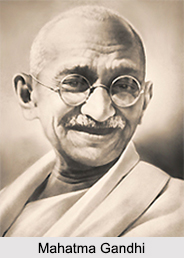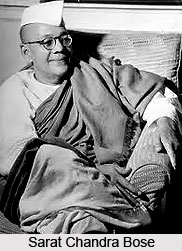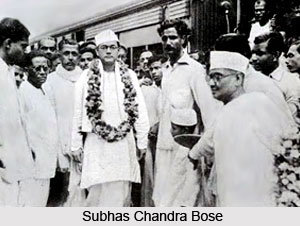 During the period of Non Cooperation Movement, there are many freedom fighters who laid their life for India`s freedom. Non-Cooperation was a movement of passive resistance against British rule, which was initiated by Mahatma Gandhi. To resist the dominance of the British Government and advance the Indian nationalist cause, the non-cooperation movement was a non-violent movement that prevailed nationwide by Indian National Congress under the leadership of Mahatma Gandhi. This movement took place from September 1920 to February 1922 and initiated Gandhi era in the Independence Movement of India.
During the period of Non Cooperation Movement, there are many freedom fighters who laid their life for India`s freedom. Non-Cooperation was a movement of passive resistance against British rule, which was initiated by Mahatma Gandhi. To resist the dominance of the British Government and advance the Indian nationalist cause, the non-cooperation movement was a non-violent movement that prevailed nationwide by Indian National Congress under the leadership of Mahatma Gandhi. This movement took place from September 1920 to February 1922 and initiated Gandhi era in the Independence Movement of India.
Rowlatt Act, Jaliwanwalabagh massacre and Martial Law in Punjab caused the native people not to trust the British Government anymore. Montagu-Chelmesford Report with its diarchy could satisfy a few only. Until then Gandhi believed the justice and fair-play of the British Government, but after this incidences he felt that Non-cooperation with the Government in a non-violent way must be started. In the meantime the Muslims in India also revolted against the harsh terms of the Treaty of severs between Allies and Turkey and they started Khilafat movement. Gandhi also decided to stand beside them. Gandhiji`s idea of winning over Muslim support also helped in Non-Cooperation Movement of India. There are many freedom fighters in India. Some of them are Mahatma Gandhi, Jawaharlal Nehru, Sarat Chandra Bose, Subash Chandra Bose and many others.
 Mahatma Gandhi
Mahatma Gandhi
Mohandas Karamchand Gandhi, popularly known as Mahatma Gandhi, led the nation through the Indian freedom struggle with his ideologies of Ahimsa or Non-violence, Civil Disobedience Movement and Swaraj. He was the leader of Indian National Congress and initiated the Satyagraha movement. He was honoured the title Mahatma, meaning Great Soul, by Rabindranath Tagore. Mahatma Gandhi is Known as Father of Nation and played a key role in the Indian freedom struggle. Mahatma Gandhi`s main contribution lay in the fact that he bridged the gulf between the intelligentsia and the masses and widened the concept of Swaraj to include almost every aspect of social and moral regeneration. Paying tribute to Mahatma Gandhi on his death, famous scientist Albert Einstein said, "Generations to come will scarce believe that such a man as this walked the earth in flesh and blood".
Jawaharlal Nehru
Jawaharlal Nehru, undisputed leader of the country who helped shape the growth and advancement of India, was born on November 14, 1889 and died on May 27, 1964. He was a political leader of the Indian National Congress, and became the first Prime Minister of independent India. Nehru was an important person during the Indian independence movement, and popularly referred to as Panditji. Nehru was a writer, scholar, an amateur historian and the patriarch of India`s most influential political family.
 Sarat Chandra Bose
Sarat Chandra Bose
Sarat Chandra Bose was born on 6th September 1889 in Calcutta. He is the son of Janakinath Bose and elder brother of Subhas Chandra Bose. Sarat Chandra Bose took his early education in Calcutta. At the age of 22 he went to England to obtain a degree in law. He returned to Calcutta and started legal practice.After some years he left the legal practice and joined the Indian independence movement. Sarat Chandra Bose was immensely influenced by the great congress leader Chittaranjan Das and joined the Indian National Congress. He actively took part in the Non-Cooperation Movement.Within few days he became a well known leader in the Indian National Congress. Sarat Chandra Bose was selected as the president of the Bengal Pradesh Congress Committee in 1936. He was the member of the All India Congress Committee from 1936 to 1947. Sarat Chandra Bose was the leader of Indian National Congress in the Central Legislative Assembly. He helped a lot to form the Indian National Army which was later led by his brother Subhas Chandra Bose. In 1946, he was given the charge of the Works, Mines and Powers ministry in the Interim Government. In 1947 he strongly opposed against partition and resigned All India Congress Committee.
Subhas Chandra Bose
Subhas Chandra Bose was most dynamic leader of India`s struggle for independence. He is more familiar with his name Netaji. His contribution towards India`s Freedom struggle was of a revolutionary. Through the INA Subhas Chandra Bose persuaded the British to think about India`s Independence. His various instructions given to the soldiers reflect his immense dedication towards attaining independence for India. This marks perhaps the most significant event in the annals of India`s fight for independence.






































